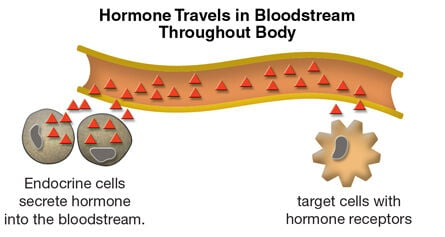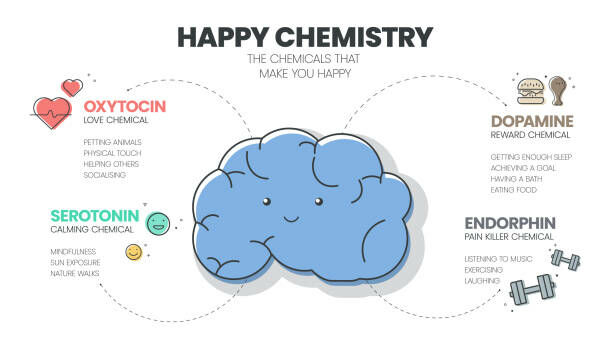Boost your happy hormones with these tips

What defines happiness? Could it be realising one’s utmost dreams, attaining wealth and success, or discovering true love? But then what follows these achievements, and does it imply an absence of happiness before their occurrence?
Striving for positive experiences is common, driven by the belief that these experiences significantly impact our well-being. However, because humans are complex, achieving sustained happiness is challenging as it is an emotional state, it comes and goes. So chasing and expecting it to remain can lead to dissatisfaction.
But that’s what makes us human! Experiencing a range of emotions is beneficial in its own right, because how are we supposed to appreciate the highs without encountering the lows? Achieving big successes doesn’t guarantee happiness but understanding how to choose happiness does. Here are natural ways you can utilize your body’s natural abilities to improve your mood.
The science behind happy hormones

Hormones
Hormones are crucial chemical messengers produced by endocrine glands and circulated in the bloodstream. They play significant roles in regulating bodily functions and influencing emotional states—earning them the moniker “happy hormones.”
The four primary happy chemicals

Dopamine
Dopamine facilitates pleasure, motivation, and learning by activating your brain’s reward system. Activities that yield enjoyment or accomplish significant tasks prompt dopamine release. This process engenders a sense of achievement or pleasure, motivating continued engagement in those activities.
Oxytocin
Oxytocin, often referred to as the “love hormone,” oxytocin is instrumental in nurturing feelings of love, trustworthiness, and connection among friends, family members or partners—thereby strengthening interpersonal relationships while also reducing stress levels.
Serotonin
Serotonin acts as an essential mood stabilizer involved in regulating emotional well-being. Low serotonin levels have been linked with depression underscoring its importance in maintaining adequate neurotransmitter levels for balanced moods.
Endorphins
Endorphins function as natural painkillers generated during physical exertion or moments filled with laughter—they mitigate pain and stress which substantially elevates one’s mood.
Natural strategies for enhancing your happy hormones

Elevating your mood naturally involves engaging in activities known for triggering happy hormone production—integrating simple habits into daily routines can significantly uplift overall well-being.
Dopamine: participate in rewarding activities
- Break down goals into manageable tasks; completing these boosts dopamine.
- Regular exercise tailored to personal preference encourages dopamine production.
- Engage creatively through writing stories or painting.
- Incorporate foods high in L-Tyrosine like avocados and bananas into diets—they’re foundational for dopamine synthesis.
Oxytocin: cultivate social bonds
- Invest time quality time with loved ones enhancing emotional health.
- Physical touch through hugs fosters oxytocin release.
- Participate actively within community groups providing support where possible.
- Include magnesium-rich foods such as spinach which aid oxytocin production.
Serotonin: sunlight exposure & mindfulness practices
- Sunlight exposure boosts serotonin levels supporting mood stabilization.
- Meditation practices encourage relaxation contributing towards balanced serotonin levels.
- Develop healthy sleep patterns improving overall mental health.
- Ensure dietary intake includes tryptophan-rich foods aiding serotonin synthesis thus promoting balance.
Endorphins: exercise & laughter therapy
- Regular intense workouts elevate endorphin levels combating negative moods over time.
- Joining group sports adds social interaction benefits alongside hormonal balance improvements.
- Watching comedy shows provides laughter therapy increasing endorphins naturally.
- Implementing these strategies diligently will promote happy hormone secretion fostering contentment without necessitating significant life events for happiness validation.
Addressing deficiencies in happy hormones

If experiencing prolonged low moods it might indicate unhappy chemical imbalances requiring attention before reaching critical states.
Recognize symptoms specific to each hormone deficiency offering clues towards targeted interventions:
Dopamine deficiency
- procrastination and lack of motivation
- feeling of low energy
- difficulty in concentrating
- experiencing mood swings
- unable to find pleasure in activities you used to enjoy
Oxytocin deficiency
- loneliness or disconnected from others
- stress
- insomnia
- anxiety
Serotonin deficiency
- low self-esteem
- depression
- anxiety attacks
- experiencing mood swings
- social phobia
- being obsessive-compulsive
Endorphin deficiency
- persistent aches and pains
- experiencing mood swings
- depression
- having impulsive behaviour
When to seek professional help
If natural remedies or lifestyle adjustments fail to make a meaningful impact, or the symptoms of hormone deficiency persist, it’s a sign to seek professional help.
- persistent feeling of hopelessness
- severe depression and anxiety affecting your daily life
- thoughts of self-harm
- if you have an existing mental illness such as addiction or trauma, professional guidance becomes critical.
Happiness doesn’t require a specific moment to be acknowledged; it can be cultivated by harnessing the power of your body’s happy hormones. The approach to achieving this is versatile—there isn’t a singular correct method. Whether through exploring new locations, indulging in unfamiliar cuisines, or choosing dance over traditional workouts, happiness is accessible when you understand how to effectively utilize your body.
Latest Thailand News
Follow The Thaiger on Google News:


























